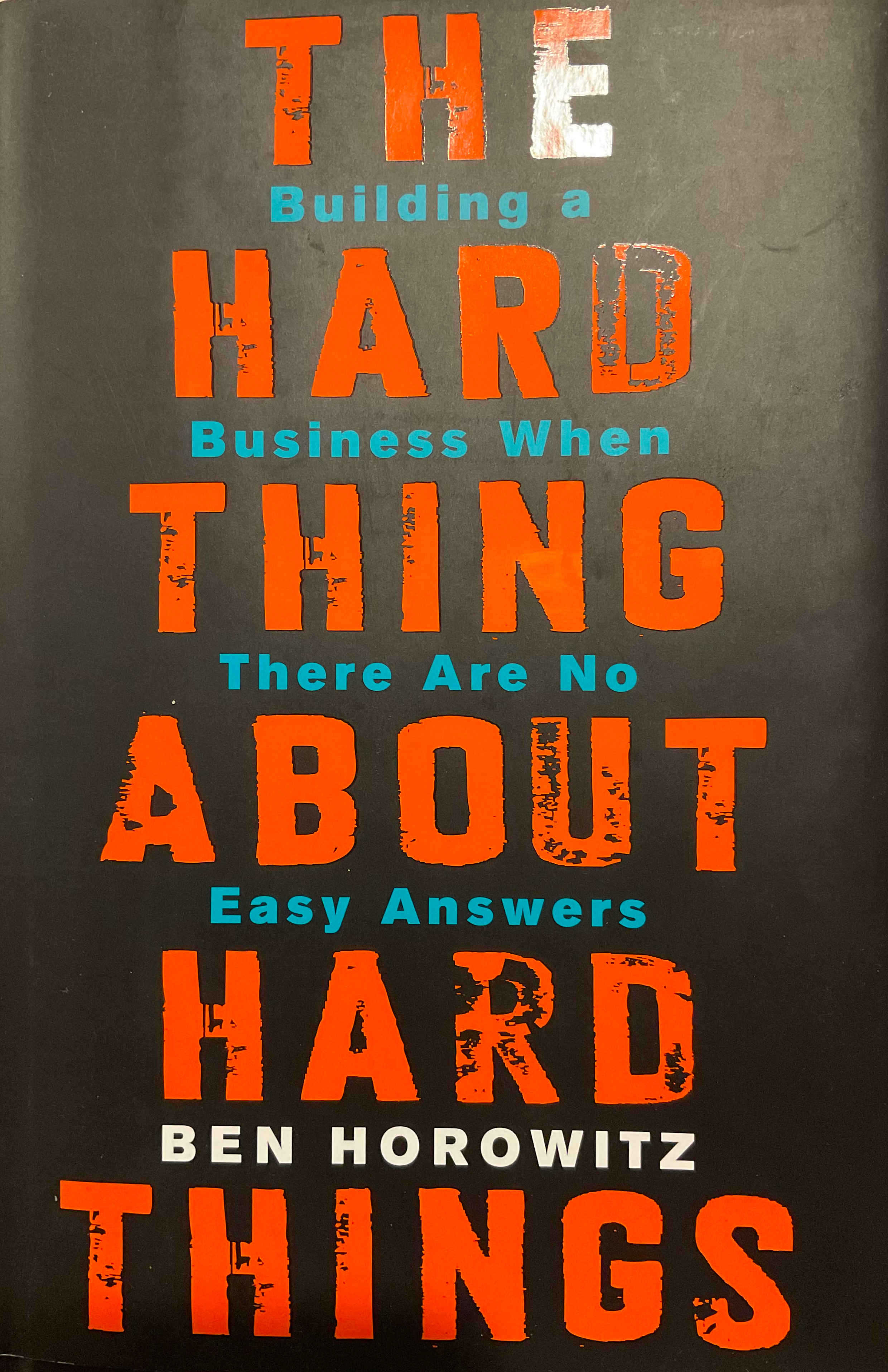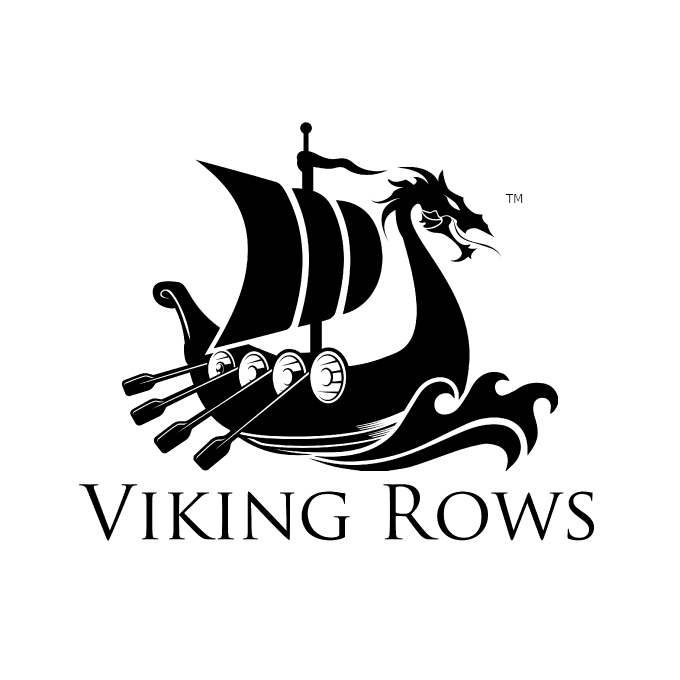
April 10, 2023
The Hard Thing About Hard Things
The struggle is where greatness comes from.‘The Hard Thing About Hard Things’, Ben Horowitz, pg. 62
Introduction
The ‘Hard Thing About Hard Things,’ by Ben Horowitz, is a book about building and leading a business through both the good and hard times. However, it seems like the author, Ben Horowitz, has had to lead his companies through mostly extremely difficult times, including the dot.com bust of the late 1990’s and the 9/11 terror attacks. Even though he now runs a prominent, successful Silicon Valley investment firm, ‘A16Z’, the journey to get that point was frought with significant pain and suffering.
In the associated video and podcast, Dr. Caple and I have the pleasure of discussing the following topics in depth with my cousin, Brooks Willet, who stopped by for a visit on his way to undertaking a micro adventure for his 40th birthday.
The Road To Success
The first half of this book chronicles author Ben Horowitz’s journey from employee at Silicon Graphics (SGI) and Lotus to starting his entrepreneurial journey within the swiftly growing internet company, Netscape, founded by Jim Clark and Marc Andreesen. Andreessen was the 22 year old CTO who interviewed and hired Horowitz at Netscape.
Horowitz ends up leading the server development team at a time when Netscape released their browser code as open source software and created the Mozilla Foundation, which helped cultivate and collect code improvements made by contributors around the world. All of this occurred during a time when Microsoft was aggressively pursuing market share in the same space by releasing Internet Explorer bundled for free with their Windows 95 operating system.
Battered by the Microsoft juggernaut, Netscape decides to sell to America Online (AOL) in Dulles, Virginia. Interesting to note the apparent success of a content company compared to a more tech-focused company, who was directly responsible for internet defining technologies like JavaScript, cookies, of course the web browser, Light-weight Directory Access Protocol (LDAP) and more.
After a time working inside of AOL, Horowitz, Andreesen and two other co-workers leave to start one of the first cloud provider companies called ‘Loudcloud’.
Loudcloud takes off like a rocket. Things look great for the business, then the dot.com bubble starts to burst and the floor falls out of the market. Surviving this downturn, as we all saw in retrospect, was no easy task. As the CEO of Loudcloud, Horowitz fought to find the cash to keep his company afloat. First, he sough additional venture capital rounds. But when the swiftly languishing markets proved too difficult to predict, causing the company to miss number expectations, the company needed to raise even more money in order to survive.
Of course this is the time things would really get tough with the 9/11 terrorist attacks. This is when the US economy would essentially grind to a halt for several weeks, months and years.
Horowitz, with the counsel of the Loudcloud Board, including Business Coach, Bill Campbell (whom we read about in ‘Trillion Dollar Coach’ and discussed in Episode 51), decided to take his ailing company public in order to raise much needed capital.
The author’s story continues through more harrowing ups-and-downs leading to successful exits with business sales to EDS and HP.
Here are my top 7 business leadership takeaways Ben Horowtiz shares in the second half of his book:
Fire Your Best Lead Bullets
When your business is facing competition that is outpacing you, there is no silver bullet for beating your competition, only lead bullets. I take the lead bullets to mean direct, head-on competition in the form of simply creating better, more performant products. In the case of Netscape’s competition with Microsoft, Microsoft was building a better web browser and faster web server that could handle more concurrent users than what Netscape could offer. The lead bullets they needed to fire at the competition were better, faster, more scalable software products across the board.
The Trillion Dollar Coach, Bill Campbell
Providing further evidence of the value Coach Bill Campbell created for the companies that Kleiner Perkins invested in, Ben Horowitz mentions Bill Campbell in several places where critical business decisions had to be made.
Ben, it’s not the money. It’s the f*&(ing money.Bill Campbell giving advice on going public, ‘The Hard Thing About Hard Things’, pg. 23
Employee Training
The author is a big proponent of employee training and education. Afterall, even McDonald’s employees receive training on how to do their job. Why would you not similarly train more skilled employees to do their job? Training and employee education lead to higher productivity and performance, improved product quality, and employee retention.
However, I did notice that on page 255 the author does seem to contradict himself a bit mentioning how there was simply no time to develop employees at the executive level. He further states about executive level employees, “If someone needs lots of training, she is below standard.”
This is a statement I found a little difficult to adjudicate juxtaposed to statements he made about feeling ill prepared to be a CEO himself at times, and by saying that great business leaders are made not born.
Dr. Caple and my cousin, Brooks Willet, help me to rectify this dichotomy in our podcast.
This is why I like talking with smart people!
Profanity Is Ok
He mentions that there was a point at Loudcloud where a few employees were put-off by the use of profanity in the company. As CEO, he ultimately came down on the side of allowing profanity to a degree, arguing that it serves as a means of catharsis and expression and should not be derogatory or demeaning when used.
One-On-Ones
He claims that one-on-ones are of criticial importance in running a successful business at scale. The one-on-ones help in the flow of information, top to bottom, relative to to the health of the culture and business organization.
Again, Dr. Caple and Brooks provide some great insight, using personal anecdotes and experiences, on the true value of one-on-ones to a business culture in our podcast.
Mastering Psychology As The Most Difficult Leadership Skill
We’ve discussed this super power before on our podcast relative to mindfulness and becoming aware of amygdala hijack and knee jerk responses. No doubts here that this is a tough skill to master.
The only thing that prepares you to run a company is running a company.‘The Hard Thing About Hard Things’, pg 202
Perhaps practice makes perfect here as well. But how best to practice this skill? Dr. Caple offers some advice in the podcast.
Three Key Leadership Attributes
- Ability To Articulate Vision - emulate Steve Jobs
- The Right Kind of Ambition - emulate Bill Campbell
- Ability To Achieve The Vision - emulate Andy Grove
Conclusion
Author Ben Horowitz echoes the sentiment of Stephen A. Schwartzman in his book, ‘What It Takes’, by saying that great leaders are mostly made, not born. Being a visionary like Steve Jobs, a beloved leader like Bill Campbell and a skilled executor and manager like Andy Grove admittedly requires a degree of innate talent.
However, author Ben Horowitz contends that these traits can also be learned and studied in order to become an effective business leader with similar traits.
Two new notable book references I picked-up from this book are by Andy Grove:
- ‘High Output Management’
- ‘Only the Paranoid Survive: How to Exploit the Crisis Points That Challenge Every Company’
Please Support Our Sponsors
Relevant Links
James Caple
BLOG
podcast learning entrepreneurship innovation learning personal growth ai machine learning internet mosaic netscape loudcloud aol hp eds tangram marc andreessen jim clark jim barksdale ben horowitz mozilla mozilla foundation a16z kleiner perkins bill campbell sgi silicon graphics
